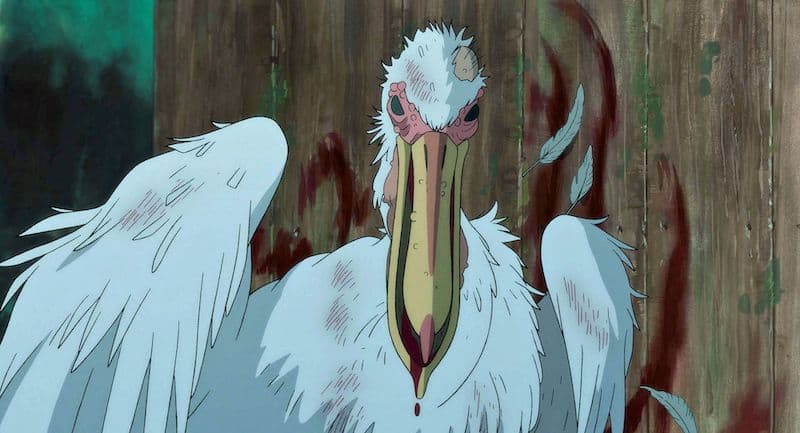
As part of our coverage of the 48th annual Toronto International Film Festival, Meg Shields reviews the final film from Hayao Miyazaki, The Boy and the Heron,’ which might not be his final film after all. Follow along with more coverage in our Toronto International Film Festival archives.
Right up until its red carpet premiere at TIFF, The Boy and the Heron was pitched as Hayao Miyazaki’s swan song: a vibrant victory lap of a peerless career, culminating in a bittersweet goodbye to all the creatures, worlds, and stories that it produced. Then Studio Ghibli executive Junichi Nishioka was like: wow, I can’t believe you fell for that, you idiots, of course he’s not retiring.
Considering that the legendary animation director has pulled this stunt no less than seven times, we should have known better. Miyazaki’s not-retirement is good news, obviously. But, in case nothing comes of it (or if we’re being trolled again), I don’t think you could ask for a better, or more triumphant, farewell.
The Boy and the Heron takes place in the final years of the Second World War, where our hero, Mahito Maki (Soma Santoki), loses his mother in an infernal blaze. Mahito’s father remarries his late wife’s sister, Natsuko (Yoshino Kimura), and the new family relocates to the countryside to escape the turmoil. Still cloaked in grief, Mahito struggles to adapt to his new life. And that pesky grey heron (Masaki Suda) — the one who keeps trying to lure him to the rotting tower deep in the woods — isn’t making things any easier. Then, when the now-pregnant Natsuko disappears into the crumbling edifice, Mahito knows what he has to do.
Entering the tower, our young hero slips into another dimension like so many Miyazaki protagonists before him. On the other side, he finds a world teeming with life, death, and mystery. I won’t rob you of the opportunity to discover these flourishes of worldbuilding for yourself. But suffice to say: if you have a parakeet, keep an eye on them.
There is a chance that some folks will find The Boy and the Heron‘s “target audience” tricky to pin down. It is simultaneously a pitch-black children’s fable and an old man’s solemn goodbye. All I can say is that the scope of the film’s tones, topics, and inventive twists is a feature rather than a bug. In the care of Miyazaki’s practiced hands, the creative chaos never gets in the way of coherent storytelling. Rather, like a dream, it somehow manages to gel together into something eloquent, profoundly personal, and radiant.
To this point, The Boy and the Heron is easily Miyazaki’s most dream-like work. Reality and fiction intermingle like the confluence of a river, forcing our hero to accept familiar faces and ever-evolving rules with stern resolve.
Bleeding watercolor backgrounds, loveable creature designs, and another heartstring-tugging score from Joe Hisaishi amount to something as spellbinding and fablelike as Miyazaki has ever produced. It is a world suffused with beauty and deep, melancholic loss. For, like many of Miyazaki’s fantastical worlds, the gears of this ecosystem are oiled with labor and sacrifice. Nothing comes easy here. And as Mahito eventually learns, to attempt to face any of it alone would be foolish.
Among the film’s many intertwined metaphorical gestures, The Boy and the Heron is dead-set on raising questions about the future of its own medium. It is both a full-throated celebration of creativity, as well as a lamentation for the effort and cost it takes to sustain the dream of making things slowly, lovingly, and with care.
Miyazaki is the not-so-immortal wizard going insane in his tower, gently stacking precarious blocks to create wondrous, imperfect worlds. Worlds that feel increasingly abandoned and decayed as the world turns its back on the art form to which Miyazaki dedicated his life. And now, the wizard finds himself in his twilight years, and asks his devoted audience: who will be the next world builder? Should we attempt to rebuild from scratch? Or is it okay for beautiful, magical things to come to an end?
Check out the trailer, here:
Related Topics: Animation, Hayao Miyazaki, Studio Ghibli, The Boy and the Heron, Toronto International Film Festival (TIFF)

